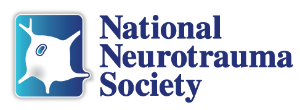Main Menu
Description & Objectives S09
S09: TBI Translational Biomarkers – From Animal Models to
FDA-Qualified Biomarkers as TBI Drug Development Tools







Chair: Geoff Manley, MD, PhD
S09.01 - FDA Perspective on Biomarker Contexts of Use, Biomarker Types and Qualification Process
Allison Kumar, PhD - Center for Devices & Radiological Health
S09.02 - Blood-Based TBI Biomarker as Theranostic Tools to support Drug Development in Animals and Humans
Kevin Wang, PhD - University of Florida
S09.03 - Experience of Translating Alzheimer’s Disease/ Parkinsonism Biomarkers Towards Regulatory Uses
Diane Stephenson, PhD - Critical Path Institute
S09.04 - Use of Pathoanatomic Lesions on Brain MRI as Biomarkers In mTBI Patients
Session Description
Biofluid-based and imaging biomarkers are increasingly recognized as important tools in the diagnosis, prognosis and management of TBI patients. New data are showing that these biomarkers can also be used as theranostic tools. For example, the post-TBI levels of serum biomarkers are shown to be responsive to therapeutic intervention in animal studies. In addition, several recent clinical TBI therapeutic trials are incorporating biomarkers as secondary endpoint (e.g. PROTECT-III).
In early 2105, though a Request for Information (Federal Register Number: 2015-02976), he Food and Drug Administration (FDA) sought information to facilitate development and qualification of biomarkers in areas related to human drug therapeutics. One of the areas of interest is to them is in fact TBI. The object was the identification of specific TBI biomarkers with a proposed context of use and the type of evidence needed to support the biomarker qualification process. Thus, FDA intends to facilitate identification of the most promising biomarkers and the areas important to drug development and to promote efforts that will aid in the qualification and regulatory adoption of the drug development framework.
The purpose of this session is to provide a forum to present how basic research-derived biomarker candidates and concepts can translate into FDA-recognized clinical tools in facilitating drug development trials. We will learn how Alzheimer"s disease and Parkinsonism communities are positing their biomarkers as clinical therapeutic development tools. It will also discuss FDA"s definition of different categories biomarkers based on Context of Use, and the "Biomarker Quantification" process.
Learning Objectives
At the conclusion of this session, attendees will be able to:
- Develop an understanding from FDA"s perspectives on the Content of Use for biomarkers, the biomarker categories (diagnostic, prognostic, predictive, response (pharmacodynamic) and efficacy surrogate biomarkers), as well as the "Biomarker Quantification" process.
- Learn about how basic research-derived biofluid-based TBI biomarker candidates can be used to monitor therapeutic effects in animal models.
- Know how two other related fields (Alzheimer's disease and Parkinsonism) are positing and advancing their biomarkers as tools to support therapeutic development.
